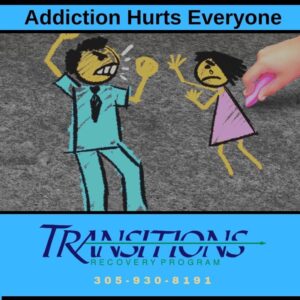 Most parents claim that their children are the most important aspect of their lives. But what about when addiction comes before one’s children? Do the effects of substance abuse impact children? The answer is “yes,” and if you know of a child being raised by an addict, it’s crucial to understand the implications.
Most parents claim that their children are the most important aspect of their lives. But what about when addiction comes before one’s children? Do the effects of substance abuse impact children? The answer is “yes,” and if you know of a child being raised by an addict, it’s crucial to understand the implications.
The truth behind substance abuse is most of the time, the children know exactly what’s going on. While they might choose to avoid commenting on the issues, the difference between a sober household and one that’s plagued by addiction become apparent over time.
Children being brought up around substance abuse tend to live a life surrounded by chaos. Parents abusing drugs or alcohol create this strange environment, and the children are being forced to endure this hectic lifestyle because they lack options. Later on in life, this unpredictable lifestyle can result in issues.
With their lives ahead of them, the impact of substance abuse on youths alters their lives forever. Addiction causes problems in a home, and when children are living around it, there’s no hiding it or lying about the issues. In this article, we’ll explain what family life is like for these children, the damage that’s being done, and what can be done to help these children.
If you or someone you love need help now please call 1-800-626-1980.
Your call could save a life.
It’s Difficult To Thrive In A Harsh Family Environment
When substance abuse is a part of a household, the family environment becomes static. Peace is not an option, and the mood swings the parents will experience tend to confuse children or promote feelings of insecurity. The damage this can do to a child’s psyche is life-long, meaning without an appropriate change, the child will never fully heal from the damage.
Instead of having parents to provide for them, these children have to fend for themselves. They don’t have a parent who’s making their food, doing laundry, and other household chores. Instead, the child has to learn to take care of themselves as best as they can as their parents continue to abuse or hopefully find the courage to attend alcohol rehab in Florida.
The parenting is inconsistent, and without a strong foundation for the children to grow on, they never firmly establish what is and is not alright. In turn, the child can grow up faster than they should, resulting in the child taking on adult responsibilities. This growth also puts them lightyears ahead of friends their own age, forcing them to alienate themselves at school and gravitate towards older negative influences.
As a child lives in a home plagued by substance abuse, they become rebellious. In turn, they distance themselves from excelling scholastically, choosing to become withdrawn. It’s common for these children to give up working hard in school, and without a proper role model to positively influence them, they find themselves preparing to deal with a parent who is under the influence of drugs or alcohol as opposed to preparing themselves to pass classes and excel in life.
Emotionally speaking, these children are more apt to have depression, suicidal thoughts, and anxiety. These families generally have a higher risk of mental illness, divorce, sexual and physical abuse, and violence than other families, and it’s not unlikely that the children are wondering why this is the case.
These children can take on the burden of blame, believing that they’re at fault for the substance abuse or it’s their duty to ensure the issues are unknown by the outside world. All in all, this can contribute to several life problems, including a diminishing desire to do good in school, a constant fear of failure, and low self-esteem.
Parental Substance Abuse Contributes To A Cycle
Parents are supposed to be role models, yet when they’re addicted to substances, the example they’re setting for their children is anything but positive. The lessons children learn from their parents will remain with them for life, meaning it’s easy for children to fall into a vicious cycle of substance abuse as a result of the actions of their parents.
Living with addicts as guardians means developing a warped sense of normality. Substance abuse is simply something people do, and the children learn about it far too early to avoid it altogether. In turn, this heightens their chances of abusing substances as adults, as well as during their youth.
While the child observes their parents drinking or abusing drugs regularly, it becomes commonplace in their eyes. With this being the case, turning to substance abuse at some point in one’s life becomes easier since it has been normalized in their eyes. Thus, a cycle develops.
Parents are abusing substances to handle their stress. And as their children grow up, the idea of using substances as a coping mechanism remains ingrained in their minds. As a result, when it comes time to find a way to deal with life’s stressors, substance abuse becomes the go-to.
Coping With Parents’ Substance Abuse
While parental substance abuse can leave a child scarred for life, some children become stronger as a result of going through these tough times. The children can develop a tough exterior as a result of growing up faster than the other kids, and with the proper love and encouragement from a sober parent, relative, teacher, or social worker, it’s possible for these children to become well-rounded individuals.
The best way to go about a parent abusing substances is for them to get the help they need. Getting treatment might sound like a lot of work, but when all is said and done, the benefits the child will receive as a result of these efforts are immeasurably incredible.
Do you or a parent you love need help treating a substance abuse problem in Florida? With Transitions Recovery, you’ll find achieving the best transition of oneself through our addiction treatment programs will have a profoundly positive impact on a child’s life.
Help create a better future for a child living with an addict and make the call today. If you or someone you love need assistance achieving the transition of yourself that children can look up to, please contact our Miami rehab today by calling 1-800-626-1980.

















